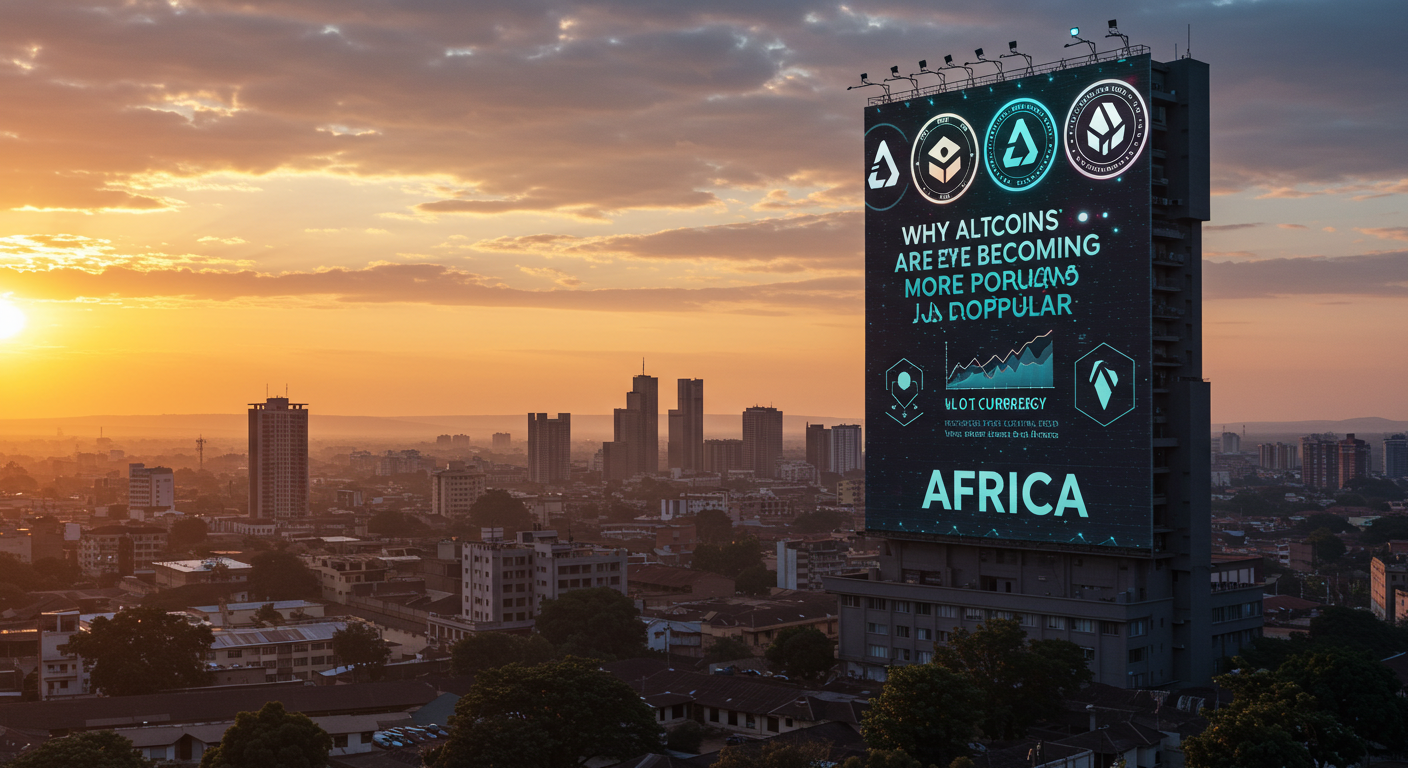
Why Altcoins Are Becoming More Popular in Africa
- Posted on: June 16, 2025
Africa is witnessing a rapid transformation in its financial landscape, and at the heart of this change is the growing popularity of cryptocurrencies—particularly altcoins. While Bitcoin (BTC) still dominates headlines, many Africans are increasingly turning to altcoins like USDT, BNB, ETH, Solana, and even community-focused tokens. But what’s driving this shift? Why are altcoins becoming more popular across the continent? This blog post explores the reasons behind this trend and what it means for Africa’s financial future.
1. Lower Transaction Fees and Faster Speed
Bitcoin, although revolutionary, often comes with high transaction fees and slower processing times, especially during periods of network congestion. In contrast, many altcoins like Solana, Litecoin, and Polygon (MATIC) offer lightning-fast transactions at a fraction of the cost. This is a big win in countries where users rely on small, frequent transactions—such as remittances, daily trade, or peer-to-peer payments.
2. Stablecoins: Fighting Volatility and Inflation
Currencies in many African countries experience regular devaluation and inflation. Stablecoins like USDT (Tether) and USDC are pegged to the US dollar, making them a safe haven for savings and cross-border payments. Nigerians, Kenyans, Ghanaians, and others use stablecoins to hedge against inflation and store value without needing a traditional bank.
3. Financial Exclusion Drives Innovation
A large percentage of Africans are still unbanked or underbanked. Altcoins and blockchain technology provide an open, accessible system that anyone with a smartphone and internet connection can use. Platforms like EootleX are taking advantage of this by allowing users to buy, sell, and save with digital assets, no matter where they are.
4. Utility-Driven Tokens Are Gaining Ground
Unlike Bitcoin, many altcoins are built with specific use cases in mind. For example:
- BNB is used to pay fees on Binance.
- ETH powers smart contracts and dApps.
- EOT (EootleX Token)—in development—is designed to enable users to trade, earn rewards, and pay for services directly within the EootleX ecosystem, and other platforms that operate under the eootleX network
Africans are beginning to value coins not just for trading but for their utility.
5. Altcoins Offer Greater Accessibility
Some altcoins are more affordable than Bitcoin. For many new crypto users, spending thousands of naira for just a tiny fraction of 1 BTC can feel unrewarding. Buying a full unit of a cheaper altcoin, like ADA or TRX, feels more tangible and is psychologically satisfying for new investors.
6. Rising Crypto Education and Communities
More Africans are becoming crypto-savvy thanks to local education initiatives, influencers, and platforms like EootleX hosting workshops, online classes, and conferences. As users learn more, they begin to explore beyond Bitcoin and discover altcoins that meet their specific needs.
7. Government Restrictions on Fiat Encourage Alternatives
In some African countries, restrictions on the movement of foreign currency, tight banking policies, or even bans on crypto-related transactions have pushed users to seek alternative routes. Altcoins—especially those with decentralized finance (DeFi) features—offer a path to financial freedom without relying on centralized systems.
Altcoins are no longer just secondary options—they are becoming central to Africa’s digital economy. As the demand for faster, cheaper, and more versatile financial tools grows, altcoins offer Africans a new way to save, invest, and do business. Platforms like EootleX are well-positioned to lead this movement by making access to these tokens easier, safer, and more practical for everyday use.
What’s Next?
Stay tuned as we continue to expand the EootleX ecosystem. From stablecoins to utility tokens like EOT, we're building a future where everyone in Africa can benefit from the power of crypto.
Ready to explore altcoins? Join EootleX today and take your first step into the future of finance.
